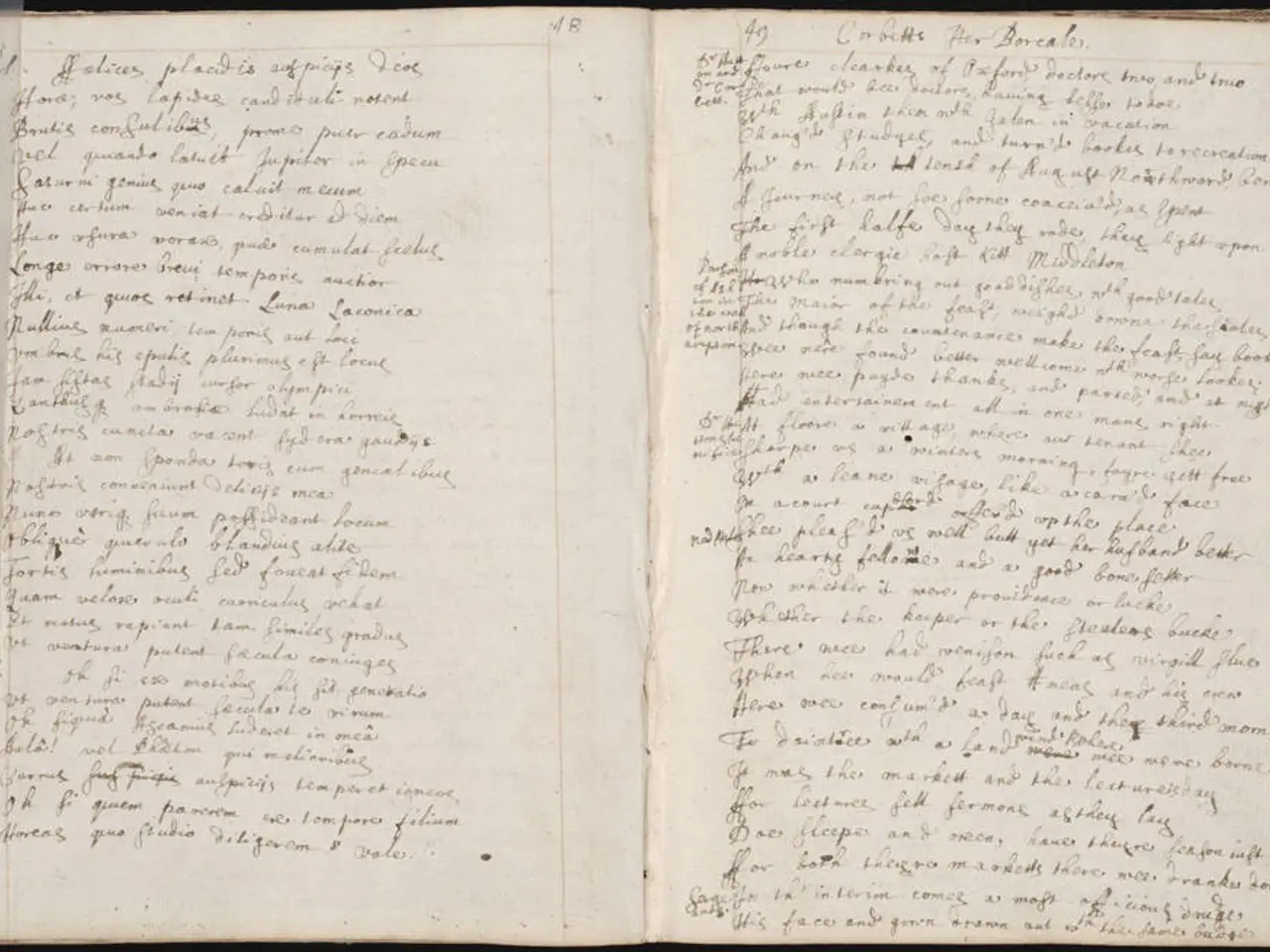Daily Journaling Technique: Morning Pages and 20 Straightforward Tips for Beginners
Morning Pages, a simple yet powerful journaling technique, has gained popularity as a tool for mental clarity, self-awareness, and creativity. This practice, originating from Julia Cameron's book "The Artist's Way", involves writing 3 pages of stream-of-consciousness thoughts every morning.
The key to success with Morning Pages is consistency and simplicity. Committing to writing three pages first thing each morning in a dedicated notebook, without editing or judgment, and allocating about 15 minutes is all it takes to start this daily habit.
To get into the flow, it may take a few weeks. It's important to avoid distractions such as phones, TV, emails, and tea breaks during this time. Preparing your materials and environment the night before can help remove barriers to writing in the morning.
Morning Pages are best done when the brain is still in touch with the subconscious world, making it ideal to write them first thing in the morning. They can be treated as a form of meditation, without judgment, and writing on paper slows down the mind compared to typing on a laptop or phone, providing a deeper connection to one's emotional life.
The practice of Morning Pages is about the process, not the end product. They are not meant to be a polished finished product but a tool to gain clarity and release pent-up thoughts and emotions. The pages can be messy and disorganized, reflecting the randomness of one's thoughts.
Old Morning Pages should not be re-read as it can lead to self-judgment and criticism. Highlighting new ideas in Morning Pages can make them easier to refer back to. Tracking journaling habit by marking calendar can help with motivation.
Morning Pages have numerous benefits such as clearing the mind, making one more creative, providing comfort in difficult times, and helping prioritize life and plan the day. They can be written in a thick, spiral-bound notebook and can be done in various locations such as on a balcony or in bed with morning coffee.
Noise-cancelling headphones or calming playlists can help with noise distractions during Morning Pages. Setting a timer for 30 minutes can help maintain focus during the practice. There will be days when writing feels labored and ideas don't flow, but this is normal. The second and third page of Morning Pages often bring incredible benefits and insight.
In conclusion, Morning Pages offer a simple yet effective way to gain mental clarity, foster self-awareness, and enhance creativity. By committing to writing three pages first thing each morning, without censoring or filtering thoughts, and maintaining consistency, anyone can reap the benefits of this powerful journaling technique.
- For optimal benefits, follow the Morning Pages routine by writing three pages of stream-of-consciousness thoughts daily at the start of your morning.
- Incorporate Morning Pages into your lifestyle as a tool for personal growth and career development, promoting mental clarity, self-awareness, and creativity.
- To make Morning Pages a daily habit, prepare your materials and environment the night before, ensuring a conducive atmosphere for journaling.
- Expand your Morning Pages practice to encompass various topics, such as fashion-and-beauty, food-and-drink, home-and-garden, relationships, education-and-self-development, and any other aspects central to your life.




